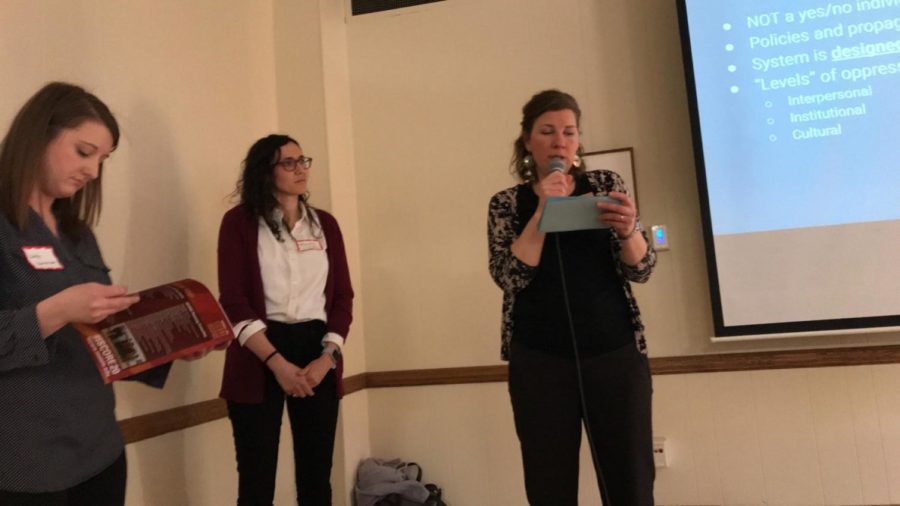ISCORE breakout session discusses white fragility and creation of better conversation
Meredith Tittler, a graduate student in counseling psychology; Caitlin Stumpner, counseling intern; and Erin Pederson, psychologist for student counseling services, lead the “What’s Inhibiting White Individuals in Race Conversations?: A Perspective on White Fragility and the Human Need for Relatedness” session at ISCORE 2020.
March 7, 2020
During the Iowa State Conference on Race and Ethnicity (ISCORE), one of the breakout sessions was “What’s Inhibiting White Individuals in Race Conversations?: A Perspective on White Fragility and the Human Need for Relatedness.”
This session was led by Meredith Tittler, a graduate student in counseling psychology; Caitlin Stumpner, counseling intern; and Erin Pederson, psychologist for Student Counseling Services.
During this session Tittler, Stumpner and Pederson said people who are white often have difficulty being a part of conversation having to do with racism. They went on to explain further that often this difficulty strains from psychological barriers in which can cause a rift in conversation regarding race.
Tittler, Stumpner and Pederson talked about how when a white person is called out for saying something problematic, and seemingly racist nature, that white people go into an emotional dilemma of whether or not they are a bad person, and taking the notion personally instead of critically thinking as to why what they said was problematic.
“People feel like they are being called evil, or horrible,” Tittler said. “We feel a need to protect our character, to explain ourselves, to be defensive, because in our heads we are being called evil, and that is threatening.”
A big point of Tittler, Stumpner and Pederson’s presentation was understanding that not only is this a socialized behavior, but also it has a name known as white fragility. They went on to talk about how in order to combat this socialized white fragility, there are two calls to action: self education and self reflection, or outward action.
Stumpner said in more detail that by using self reflection and realizing how someone with privileged identities has more opportunities and that those identities have benefited them in that systemic environment. She said that by people making themselves feel uncomfortable in regards to realizing their privilege, people can move to educate and better themselves.
The other call to action was an outward action, in which Stumpner advised that those with privilege, use it and their voice to help call out microaggressions, as well as problematic behavior. As well, she encouraged those with privileged identities to support people of color who are working towards having positions of power, so that people of color have an opportunity to have their own platform to fight systemic racism.

















